There is a copy of theIrish Field’s RDS horse show magazine in the office of Tánaiste Leo Varadkar. He looked at it curiously when I handed it to him, asking had he ever been; “I go racing maybe three times a year, well I used to before the pandemic.”
I divulge that what he does in his downtime is one of my questions but that I want to start with “Tánaiste, why are we here?”
On this he is clear, stating; “at the moment there is a lot of upheaval and uncertainty in farming and in the rural economy. The main thing that I would like to do is reassure people that the Government has a vision for the future of rural Ireland and agriculture.”
In outlining this vision, he points to four income streams for farmers, the first being a good price for farm products; “It is good to see better prices notwithstanding high input costs, which I appreciate cancel a lot of that out.
Then Government and EU grants, but also increasingly things like carbon farming and microgeneration, where I think there’s money to be made”.
Making reference to the census figures - which show the population increased in every county – he asserts that Government policies in relation to rural Ireland are paying off, albeit the picture is mixed.
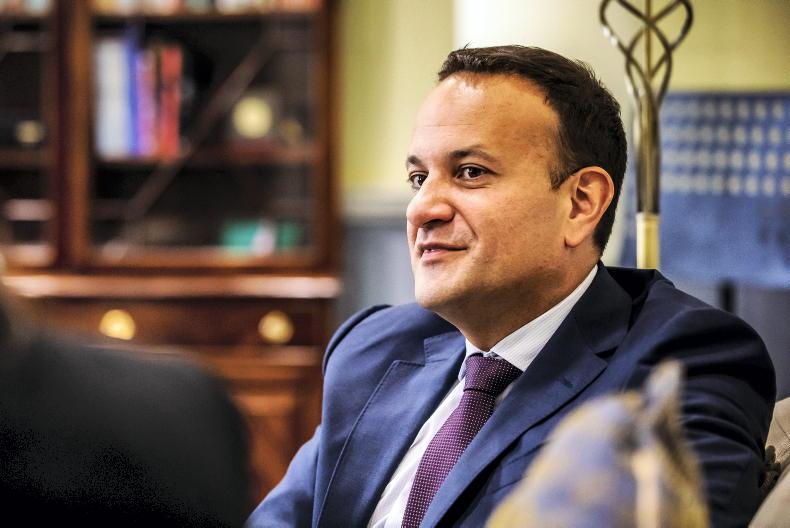
“There isn’t one rural Ireland. Some areas, particularly in west Mayo and west Galway, the population is still falling and they need special attention. I think there’s a great future there, from agriculture, from tourism, from energy production, and also remote working”.
When challenged that farmers in attendance at the recent Fine Gael agriculture conference felt that broadband – to the party - is a potential way to diversify from agriculture being the core industry of rural Ireland, he argued; “I don’t think a more diversified rural economy means less agriculture. I want to make sure we maintain our food production levels at the level they’re at now because the world’s population is going to grow and demand for food is going to grow.
“It’s never a good idea even in a city to be overly dependent on any one industry. You want to have a diversity of industry and diversity of income sources. The fact that we’ll see more wind farms and more anaerobic digestion and more solar in rural Ireland doesn’t necessarily mean that there has to be less food production.”
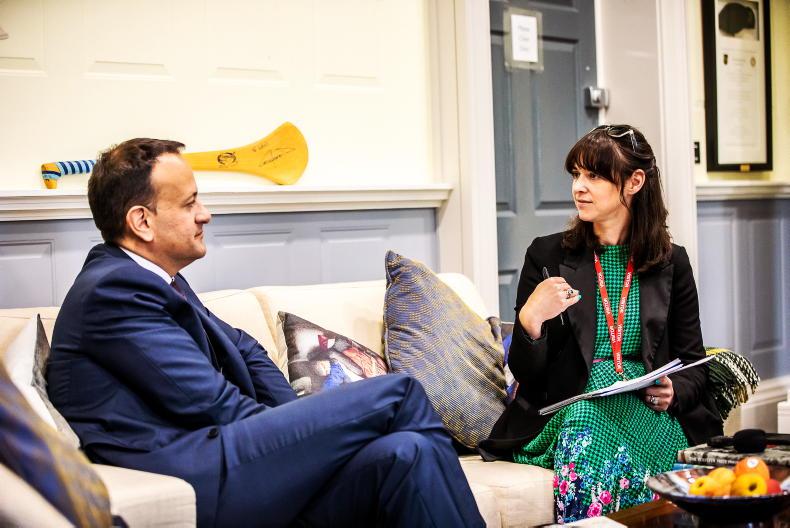
When I suggest that planning could interfere with plans for these initiatives, he agrees and points to a number of changes Government need to make.
The first is statutory timelines for decisions from An Bord Pleanála. The second relates to judicial reviews (JR), whereby a new law going through the Dáil will ensure JR is the port of last resort by somebody who has gone through the normal process of objecting, while the threshold for getting a JR and costs are also being looked at.
“This is not just particular to farming, ironically, some of the most important climate action projects could potentially be held up in the same way, ” he notes.
To this point I ask if he is concerned about the mental health impact on farmers that are being painted as climate criminals for following Government policy to increase production.
“I can understand that. We encouraged growth in the dairy sector and it’s been a huge success quite frankly. Dairy production is a really important export for us and incomes are pretty good, certainly, relative to other forms of farming. What a lot of people in farming are experiencing is real uncertainty through higher input costs, new regulations or by the need to take climate action.
“There is a lot of scare mongering going on by some people, including people in politics that actually does farmers a disservice and adds to their stress levels.
I’ve often said, it’s never going to be the case that anyone’s going to be told to stop farming or going to have cows confiscated from them or anything like that”.
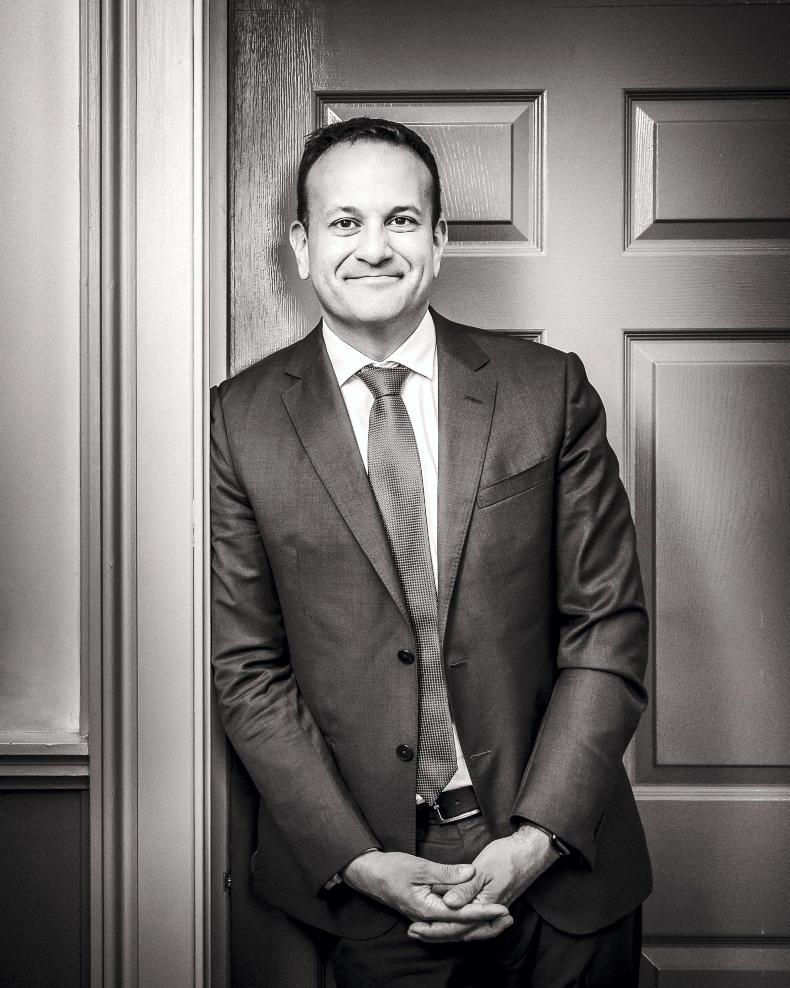
Although welcome comments, I put to him that where the emissions targets land, it could indirectly stop farming to which he replies; “The fundamental thing is, if we go beyond 22%, we need to know how we’re going to achieve it.
We need to make sure that farmers are properly funded and incentivized. We also need to make sure there’s no coercion. Most farmers I meet, particularly younger ones, are up for this and they get it.”
I raised the suggestion made at the Joint Oireachtas Committee on Agriculture last week to set a realistic achievable target now with further ambition when science supports it.
The Tánaiste answered that “a lot of farmers are concerned they’re going to be punished if they can’t achieve the unachievable but if it’s not achievable, it’s not achievable.
Maybe something like that would make sense, where we set out what is achievable, and then have a certain amount that’s contingent on new technologies being developed.
“Uncertainty is often the worst thing in life, because uncertainty breeds anxiety, and I think we can all get behind a plan. There’s little achieved if you reduce your emissions by displacing them.
If you displace beef and dairy production to other parts of the world, it’s the same atmosphere that gets hit with greenhouse gases.
The same applies to pharmaceutical plants and data centres. Putting them in a different part of the world doesn’t achieve anything in terms of climate action.”
At European level, governments are working on the “carbon border adjustment mechanism”.
What this will do he explains is tax imports – “could be beef from South America but could be microchips or steel from China – if they are cheaper, because they’re not taking environmental issues seriously, this mechanism will impose a carbon tax on them”.
Ukrainian guest
The Tánaiste and his partner Matt have a Ukrainian refugee living with them since the end of May. Of this experience, he says that, it puts things in perspective.
“She has given up her apartment to two families who were displaced and her boyfriend is fighting in the war. It does bring it home, anytime she doesn’t get a phone call for a day, understandably she gets very worried. I think we’re doing something good but also, it does help you put your problems in perspective.

Ireland is an imperfect country with many flaws, but aren’t we lucky to live where we live”.
Sinn Féin
The Tánaiste believes that what Sinn Féin would do in power is an interesting unknown.
“A lot of people say that once they get into office, like they have in the North they’re actually very centrist and [would] increase rents, increase the pension age, increase the property tax, do all the things that they said they wouldn’t do.
That makes it a very strange proposition to me, if they get in and keep their promises – radically change our economic policy and our European policy - that will be bad for Ireland in my view.
If they get into office and don’t implement their policies, well then all this stuff about radical change is all phoney.
“The only case for voting for them is that they are not us. People are maybe tired and frustrated at the problems the country faces and annoyed with us for not having solved them yet and I understand that”.
“I think we can recover a lot of our support in rural areas where we have lost ground. The focus has to be less on exposing Sinn Féin and more on convincing rural Ireland - through our actions - that we are on their side.
Whether that is making the national broadband plan happen or the technological universities which are a really important recent development.”
And … how do you relax?
“The gym or a run. That’s not just good for the body, it’s good for the soul and the head as well because it stops you focusing and worrying about things at hand. I like the cinema and if I can get to a few concerts.”
Philip our photographer admitted to spotting the Tánaiste coming out of Alanis Morissette a few weeks back. When I mentioned that I had seen her circa 1996 – he dryly said “probably the same concert, it’s basically Jagged Little Pill”.
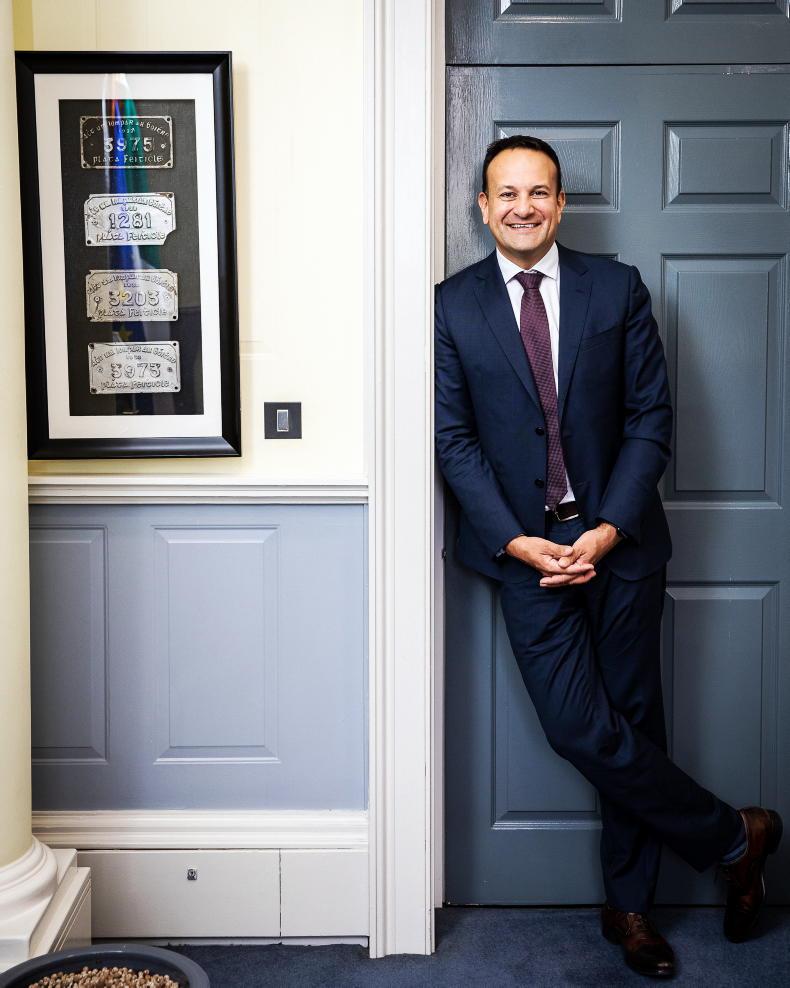
On social media
“I have become good at tuning it out and ignoring a lot of the comments. Even though you don’t necessarily like what people have to say, I’d be very careful or sceptical about anything that would limit people’s right to say what they want to say but when it goes too far it’s different”.
On organics
“Minister Hackett is a big fan of organic farming and a big advocate of it. We are giving additional supports to that sector. Do I buy organic? Not really to be honest. I maybe need to be more aware of what’s available but it is expensive and I think for the foreseeable future it’s going to be limited to a premium market.”
On trade
“If everyone that’s Irish bought Irish and everyone who’s French bought French and everyone that is British bought British, we’d be a very poor country. We’re heavily dependent on trade and exports for our living standards. That’s true for agriculture, for tech, for pharma. We benefit enormously from international trade. We need to be grown up about that.”
On work visas
“We need to be conscious that we are bringing people into a country where there’s a housing shortage so we can’t have an unlimited number of work visas but we have speeded up the process.
“We are going to bring in a new seasonal permit, which will be particularly important for horticulture and we’ll publish that legislation before September”.
On meat
As the Tánaiste’s comments on cutting down on meat were well covered, I asked for an update.
“I’m not a vegan or vegetarian not that I’ve any objection to people who make the decision for themselves.
Matt shops more often than I do, but it’s mostly SuperValu, they have a great range of different stuff. My attempts to cut down on meat were not particularly successful.”
On polls
“Polls go up and down. Support goes up and down. The most recent poll had us on 21% which would be slightly up on the last election.
The Irish Times, I think had us on our lowest since 1994. What happened after 1994, John Bruton became Taoiseach and we got 28% in the election.
And that was even before Enda Kenny came along and we got 36%. What goes down also goes up in politics.”
Read more
Ryan: farmers will have to ‘go to the max’ on carbon targets
Farmers are not being unfairly targeted on water quality, says EPA chief
There is a copy of theIrish Field’s RDS horse show magazine in the office of Tánaiste Leo Varadkar. He looked at it curiously when I handed it to him, asking had he ever been; “I go racing maybe three times a year, well I used to before the pandemic.”
I divulge that what he does in his downtime is one of my questions but that I want to start with “Tánaiste, why are we here?”
On this he is clear, stating; “at the moment there is a lot of upheaval and uncertainty in farming and in the rural economy. The main thing that I would like to do is reassure people that the Government has a vision for the future of rural Ireland and agriculture.”
In outlining this vision, he points to four income streams for farmers, the first being a good price for farm products; “It is good to see better prices notwithstanding high input costs, which I appreciate cancel a lot of that out.
Then Government and EU grants, but also increasingly things like carbon farming and microgeneration, where I think there’s money to be made”.
Making reference to the census figures - which show the population increased in every county – he asserts that Government policies in relation to rural Ireland are paying off, albeit the picture is mixed.

“There isn’t one rural Ireland. Some areas, particularly in west Mayo and west Galway, the population is still falling and they need special attention. I think there’s a great future there, from agriculture, from tourism, from energy production, and also remote working”.
When challenged that farmers in attendance at the recent Fine Gael agriculture conference felt that broadband – to the party - is a potential way to diversify from agriculture being the core industry of rural Ireland, he argued; “I don’t think a more diversified rural economy means less agriculture. I want to make sure we maintain our food production levels at the level they’re at now because the world’s population is going to grow and demand for food is going to grow.
“It’s never a good idea even in a city to be overly dependent on any one industry. You want to have a diversity of industry and diversity of income sources. The fact that we’ll see more wind farms and more anaerobic digestion and more solar in rural Ireland doesn’t necessarily mean that there has to be less food production.”

When I suggest that planning could interfere with plans for these initiatives, he agrees and points to a number of changes Government need to make.
The first is statutory timelines for decisions from An Bord Pleanála. The second relates to judicial reviews (JR), whereby a new law going through the Dáil will ensure JR is the port of last resort by somebody who has gone through the normal process of objecting, while the threshold for getting a JR and costs are also being looked at.
“This is not just particular to farming, ironically, some of the most important climate action projects could potentially be held up in the same way, ” he notes.
To this point I ask if he is concerned about the mental health impact on farmers that are being painted as climate criminals for following Government policy to increase production.
“I can understand that. We encouraged growth in the dairy sector and it’s been a huge success quite frankly. Dairy production is a really important export for us and incomes are pretty good, certainly, relative to other forms of farming. What a lot of people in farming are experiencing is real uncertainty through higher input costs, new regulations or by the need to take climate action.
“There is a lot of scare mongering going on by some people, including people in politics that actually does farmers a disservice and adds to their stress levels.
I’ve often said, it’s never going to be the case that anyone’s going to be told to stop farming or going to have cows confiscated from them or anything like that”.

Although welcome comments, I put to him that where the emissions targets land, it could indirectly stop farming to which he replies; “The fundamental thing is, if we go beyond 22%, we need to know how we’re going to achieve it.
We need to make sure that farmers are properly funded and incentivized. We also need to make sure there’s no coercion. Most farmers I meet, particularly younger ones, are up for this and they get it.”
I raised the suggestion made at the Joint Oireachtas Committee on Agriculture last week to set a realistic achievable target now with further ambition when science supports it.
The Tánaiste answered that “a lot of farmers are concerned they’re going to be punished if they can’t achieve the unachievable but if it’s not achievable, it’s not achievable.
Maybe something like that would make sense, where we set out what is achievable, and then have a certain amount that’s contingent on new technologies being developed.
“Uncertainty is often the worst thing in life, because uncertainty breeds anxiety, and I think we can all get behind a plan. There’s little achieved if you reduce your emissions by displacing them.
If you displace beef and dairy production to other parts of the world, it’s the same atmosphere that gets hit with greenhouse gases.
The same applies to pharmaceutical plants and data centres. Putting them in a different part of the world doesn’t achieve anything in terms of climate action.”
At European level, governments are working on the “carbon border adjustment mechanism”.
What this will do he explains is tax imports – “could be beef from South America but could be microchips or steel from China – if they are cheaper, because they’re not taking environmental issues seriously, this mechanism will impose a carbon tax on them”.
Ukrainian guest
The Tánaiste and his partner Matt have a Ukrainian refugee living with them since the end of May. Of this experience, he says that, it puts things in perspective.
“She has given up her apartment to two families who were displaced and her boyfriend is fighting in the war. It does bring it home, anytime she doesn’t get a phone call for a day, understandably she gets very worried. I think we’re doing something good but also, it does help you put your problems in perspective.

Ireland is an imperfect country with many flaws, but aren’t we lucky to live where we live”.
Sinn Féin
The Tánaiste believes that what Sinn Féin would do in power is an interesting unknown.
“A lot of people say that once they get into office, like they have in the North they’re actually very centrist and [would] increase rents, increase the pension age, increase the property tax, do all the things that they said they wouldn’t do.
That makes it a very strange proposition to me, if they get in and keep their promises – radically change our economic policy and our European policy - that will be bad for Ireland in my view.
If they get into office and don’t implement their policies, well then all this stuff about radical change is all phoney.
“The only case for voting for them is that they are not us. People are maybe tired and frustrated at the problems the country faces and annoyed with us for not having solved them yet and I understand that”.
“I think we can recover a lot of our support in rural areas where we have lost ground. The focus has to be less on exposing Sinn Féin and more on convincing rural Ireland - through our actions - that we are on their side.
Whether that is making the national broadband plan happen or the technological universities which are a really important recent development.”
And … how do you relax?
“The gym or a run. That’s not just good for the body, it’s good for the soul and the head as well because it stops you focusing and worrying about things at hand. I like the cinema and if I can get to a few concerts.”
Philip our photographer admitted to spotting the Tánaiste coming out of Alanis Morissette a few weeks back. When I mentioned that I had seen her circa 1996 – he dryly said “probably the same concert, it’s basically Jagged Little Pill”.

On social media
“I have become good at tuning it out and ignoring a lot of the comments. Even though you don’t necessarily like what people have to say, I’d be very careful or sceptical about anything that would limit people’s right to say what they want to say but when it goes too far it’s different”.
On organics
“Minister Hackett is a big fan of organic farming and a big advocate of it. We are giving additional supports to that sector. Do I buy organic? Not really to be honest. I maybe need to be more aware of what’s available but it is expensive and I think for the foreseeable future it’s going to be limited to a premium market.”
On trade
“If everyone that’s Irish bought Irish and everyone who’s French bought French and everyone that is British bought British, we’d be a very poor country. We’re heavily dependent on trade and exports for our living standards. That’s true for agriculture, for tech, for pharma. We benefit enormously from international trade. We need to be grown up about that.”
On work visas
“We need to be conscious that we are bringing people into a country where there’s a housing shortage so we can’t have an unlimited number of work visas but we have speeded up the process.
“We are going to bring in a new seasonal permit, which will be particularly important for horticulture and we’ll publish that legislation before September”.
On meat
As the Tánaiste’s comments on cutting down on meat were well covered, I asked for an update.
“I’m not a vegan or vegetarian not that I’ve any objection to people who make the decision for themselves.
Matt shops more often than I do, but it’s mostly SuperValu, they have a great range of different stuff. My attempts to cut down on meat were not particularly successful.”
On polls
“Polls go up and down. Support goes up and down. The most recent poll had us on 21% which would be slightly up on the last election.
The Irish Times, I think had us on our lowest since 1994. What happened after 1994, John Bruton became Taoiseach and we got 28% in the election.
And that was even before Enda Kenny came along and we got 36%. What goes down also goes up in politics.”
Read more
Ryan: farmers will have to ‘go to the max’ on carbon targets
Farmers are not being unfairly targeted on water quality, says EPA chief












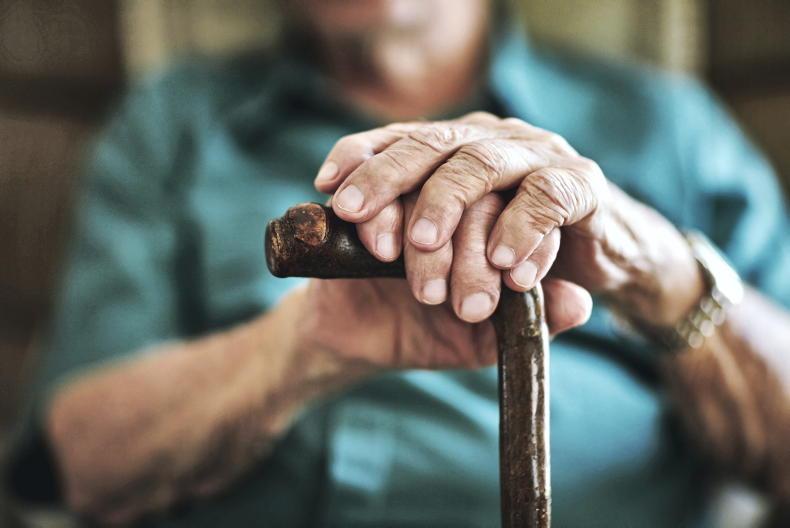
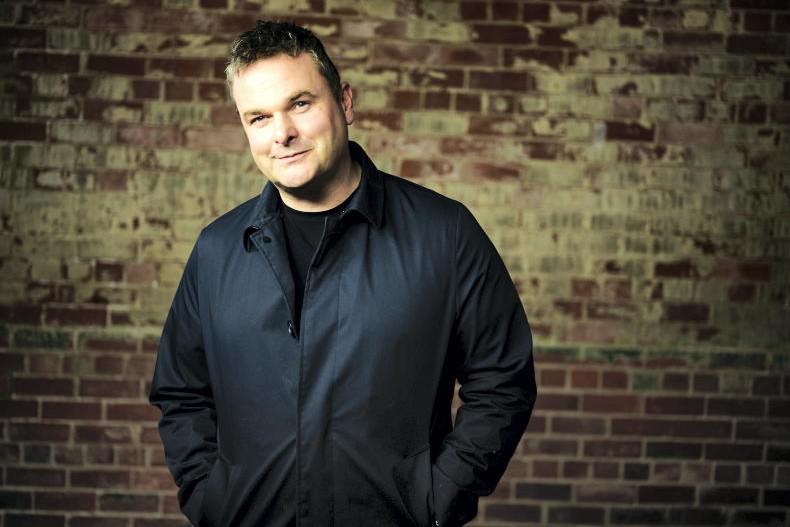
SHARING OPTIONS